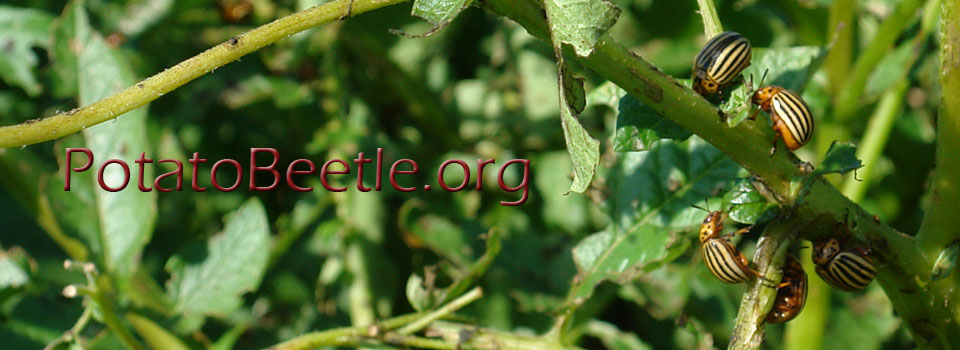Wiebe K F, O O Elebute, C M R LeMoine, B J Cassone, Journal of Economic Entomology, Volume 113, Issue 3, June 2020, Pages 1445–1454, https://doi.org/10.1093/jee/toaa020
The Colorado potato beetle (Leptinotarsa decemlineata (Say)) is an important pest of the cultivated potato (Solanum tuberosum (L.) [Solanales: Solanaceae]). With its broad resistance toward commonly used insecticides, it is clear that more sophisticated control strategies are needed. Due to their importance in insect development, microRNAs (miRNAs) represent a potential tool to employ in insect control strategies. However, most studies conducted in this area have focused on model species with well-annotated genomes. In this study, next-generation sequencing was used to catalogue the miRNAs produced by L. decemlineata across all eight stages of its development, from eggs to adults. For most stages, the length of miRNAs peaked between 21 and 22 nt, though it was considerably longer for the egg stage (26 nt). Global profiling of miRNAs revealed three distinct developmental clusters: 1) egg stage; 2) early stage (first, second, and third instar); and 3) late stage (fourth instar, prepupae, pupae, and adult). We identified 86 conserved miRNAs and 33 bonafide novel miRNAs, including stage-specific miRNAs and those not previously identified in L. decemlineata. Most of the conserved miRNAs were found in multiple developmental stages, whereas the novel miRNAs were often stage specific with the bulk identified in the egg stage. The identified miRNAs have a myriad of putative functions, including growth, reproduction, and insecticide resistance. We discuss the putative roles of some of the most notable miRNAs in the regulation of L. decemlineata development, as well as the potential applications of this research in Colorado potato beetle management.
